
There Are Two New Drugs to Treat Gonorrhea
The FDA approved two new drugs to treat gonorrhea The new drugs—gepotidacin and zoliflodacin—are both new kinds of antibiotics and represent the first completely new treatment options in over thirty years.

Two studies published in this month’s JAMA Internal Medicine offer encouraging findings about the use of doxy PEP. One study in San Francisco found lower rates of syphilis and chlamydia after doxy PEP was introduced than would have been expected. Another study in Northern California found fewer case of chlamydia, syphilis, and gonorrhea among PrEP users who also used doxy PEP. While there’s not enough data to prove a direct causal connection yet, the authors of both studies believe that the early doxy PEP roll out in parts of California is behind decreasing STI rates in the state.
Doxy PEP is a new STI prevention strategy. Users take the antibiotic doxycycline after condomless oral or anal sex to prevent chlamydia, gonorrhea, or syphilis. Early studies showed that it can reduce the risk of syphilis and chlamydia by 80% or more. It can also reduce the risk of gonorrhea by 50% when used by men who have sex with men (MSM) and transgender women who have sex with men. Research on cisgender women who have penis-in-vagina sex has not found doxy PEP to be effective.
San Francisco was an early adopter of this strategy. One of the new studies looked at bacterial STI rates in that city after the introduction of doxy PEP. It compared those numbers to projected rates based on past data. Researchers looked at real and projected numbers over a 13-month period that ended in November 2023. They found that chlamydia was down 50% compared to projections and early syphilis was down 51%. Gonorrhea cases, however, were higher than the projected rates for that period.
The other study was conducted among Kaiser Permanente patients in Northern California. It included 11,551 people who were taking PrEP to prevent HIV. The researchers found that those who also took doxy PEP had fewer cases of all bacterial STIs. Specifically, quarterly positive tests were down by 79% for chlamydia, 80% for syphilis, and 12% for gonorrhea. In contrast, rates of these STIs remained stable among those participants who took PrEP but did not use doxy PEP.
Researchers noted that the declines in gonorrhea cases only included infections of the urethra or anus. There was no decline in cases of gonorrhea of the throat. More research is needed to understand why doxy PEP is ineffective against throat infection.
There are concerns about antibiotic resistance and whether widespread use of doxy PEP could add to the problem. The bacteria that cause gonorrhea, for example, has already shown resistance to full classes of antibiotics. In fact, existing resistance to doxycycline may be why doxy PEP is not as effective against gonorrhea. The fear is that that increasing the use of doxycycline will give bacteria more opportunity to evolve antibiotic resistance. The authors of both studies agree that this issue needs to be further investigated.
The Centers for Disease Control and Prevention (CDC) offer guidelines on doxy PEP use. CDC recommends that providers discuss doxy PEP with men who have sex with men and transgender women who have sex with men—especially those who’ve had an STI in the last year.
These new studies provide a glimpse of how use of doxy PEP among MSM and transgender women could positively impact STI rates on a population level.

The FDA approved two new drugs to treat gonorrhea The new drugs—gepotidacin and zoliflodacin—are both new kinds of antibiotics and represent the first completely new treatment options in over thirty years.
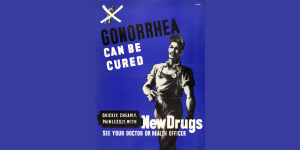
A new report from the World Health Organization (WHO) warns of rising levels of drug-resistant gonorrhea. The data comes from reported cases of gonorrhea in 12 countries across five WHO regions.
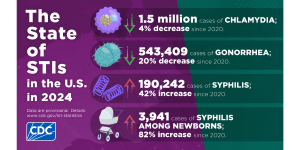
The CDC just released STI Surveillance Data for 2024 that show cases of chlamydia, gonorrhea, and syphilis are slowly declining.
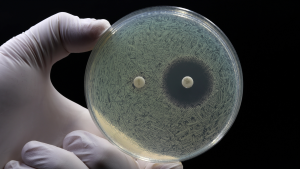
A new study is raising concerns that doxy PEP, a strategy of taking medication to prevent STIs, might already be contributing to the rise of antibiotic-resistant bacteria.

On a recent episode of Love Island, a cast member sugested that we could blame our current STI epidemic on men who had sex with animals. She pointed to koalas with chlamydia as an example. There’s some truth here, but also a lot of misinformation.
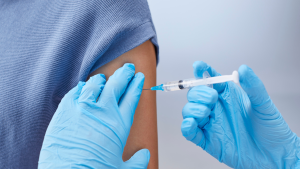
There’s potential good news in gonorrhea prevention as a series of studies suggests that certain meningococcal B (MenB) vaccines can reduce the risk of gonorrhea.

Many people who take doxy PEP say it gives them peace of mind in their relationships and sex life. We sat down with Oscar Alexis, Efthimios, and Maxfield Haynes to talk about doxy PEP and get their perspective.
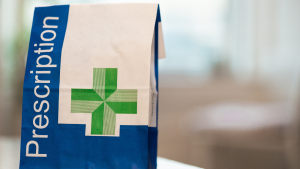
About 1.6 million cases of chlamydia and 600,000 cases of gonorrhea are diagnosed in the United Sates each year. A new study suggests that these patients may not be following through with STI treatment or getting the right antibiotics.
ASHA believes that all people have the right to the information and services that will help them to have optimum sexual health. We envision a time when stigma is no longer associated with sexual health and our nation is united in its belief that sexuality is a normal, healthy, and positive aspect of human life.
ABOUT
GET INVOLVED
ASHA WEBSITES
GET HELP
© 2026 American Sexual Health Association
We need to know if we can keep you company during this visit. We are useful for making this site work.
We use cookies to enhance your browsing experience. You can choose which cookies you want to accept.
Necessary cookies help make a website usable by enabling basic functions like page navigation and access to secure areas. The website cannot function properly without these cookies.
| Cookie | Provider | Purpose | Expiry |
|---|---|---|---|
digiconsent | This website | Stores your cookie consent preferences. | 1 year |
wordpress_logged_in_* | WordPress | Identifies logged-in users and their authentication details. | 14 days / Session |
wordpress_sec_* | WordPress | Stores authentication details for secure areas. | 14 days / Session |
wp-settings-* | WordPress | Stores user interface customization preferences. | 1 year |
wp-settings-time-* | WordPress | Stores the time when wp-settings cookie was set. | 1 year |
Analytics cookies help us understand how visitors interact with our website by collecting and reporting information anonymously. This helps us improve our website.
Marketing cookies are used to track visitors across websites. The intention is to display ads that are relevant and engaging for the individual user.
Functional cookies enable the website to provide enhanced functionality and personalization. They may be set by us or by third party providers.